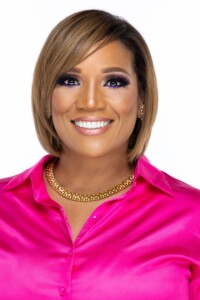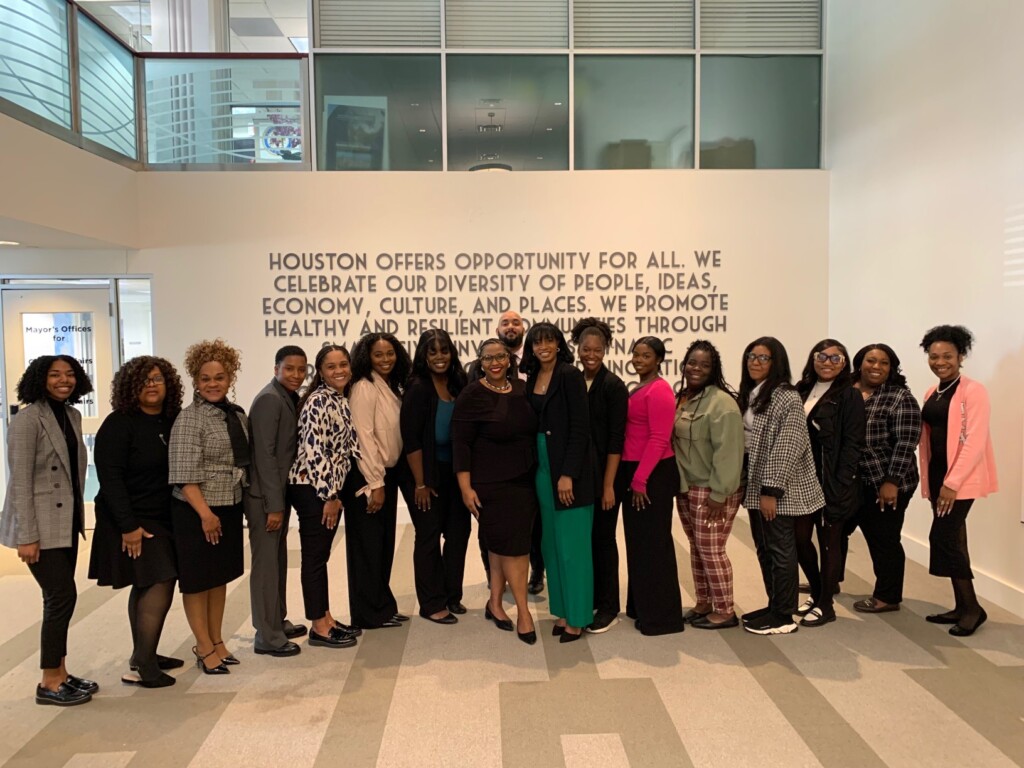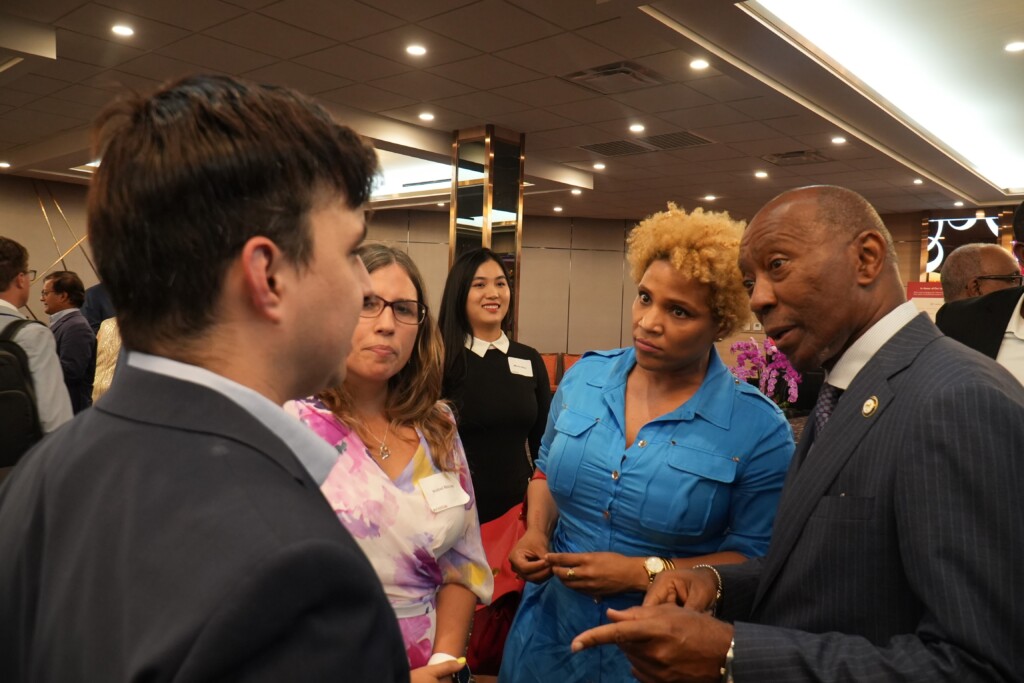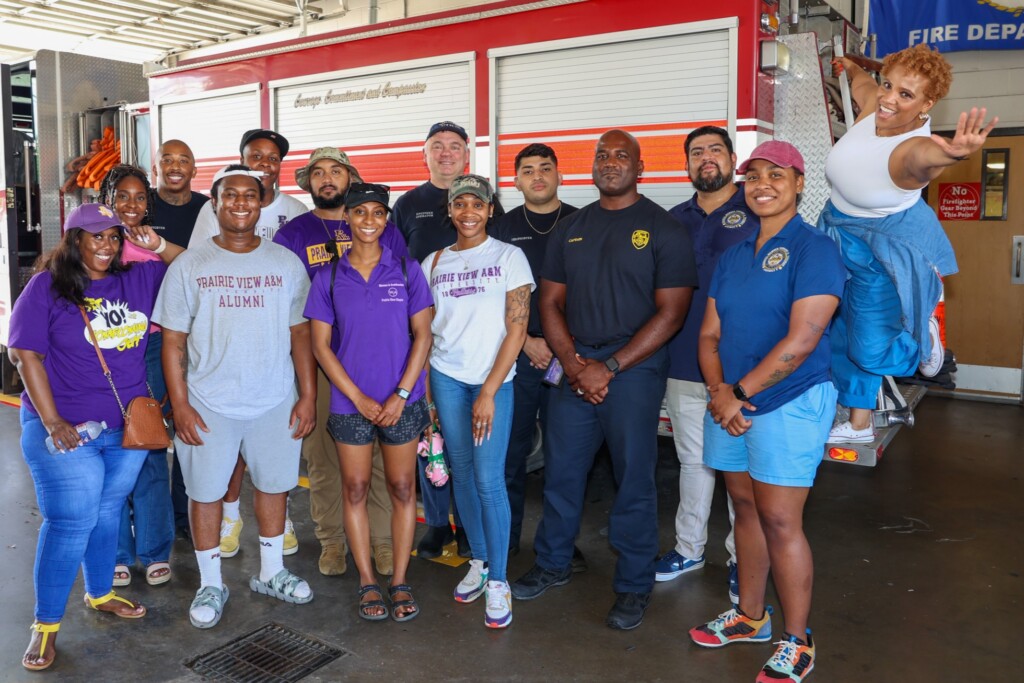PRAIRIE VIEW, Texas (Jan. 25, 2024) – Why do some neighborhoods have grocery stores when others do not? Why are some streets always paved and dry when others are riddled with potholes and perpetually wet?
Tiffany D. Thomas ‘08, program coordinator and assistant professor of community development in the School of Architecture at Prairie View A&M University, always wondered.
So, when someone suggested enrolling in PVAMU’s Community Development Program, she signed up. “It completely shifted my definition of equity and helped elevate my ongoing work with nonprofit organizations and community issues,” said the PVAMU alumna. “I am a proud product of the program I teach in.”
Thomas was recently honored with the Community Development Society’s Outstanding Community Development Educator Award “in recognition of their excellence in teaching and instruction within the field of community development” and “outstanding contributions within community development education.”
“I was honored to receive the nomination and even more honored to receive the support of my colleagues through various expressions of community development,” Thomas said. “I am the first recipient from an HBCU to receive this award, and it is apropos that PVAMU would lead in this manner as we are the only HBCU with a community development graduate program.”
As an educator, she admits she is “a firm, no-nonsense faculty member” who expects the best from her students. “I push them to levels of discomfort at times because I believe and reiterate to my students that if you desire to work with people, then you are not in a position to let them or their community down,” she said.
Thomas, a Houston city council member, added: “If you desire to serve in public office, then you must master the content, be able to articulate it and be prepared for someone else to challenge your thinking — that is what I am good at — that is what I expect my students to say about me — once they leave my nest, they are more confident and clear in their professional interests, moral character and commitment to community.”
Her classes are more like community labs, where students tackle real issues relevant to their daily lives. In her classroom, Thomas says she tries to leverage her personal and professional network for her students’ empowerment, hosting visiting mayors from Houston to Baltimore and New Orleans, as well as leading student discussions at City Hall on relevant key issues like housing and economic development. “I want them to know the world is waiting for them.”
Thomas also shared about returning to Alief, a Houston neighborhood, as a recent grad and wondering why some neighborhoods looked different – “why some neighborhoods had high-quality parks, and others were taken over by homelessness and stray animals.”
In 2022, she was awarded the UNCF’s John and Drucie Chase Young Builders Award, named after John Chase, the first licensed Black architect in Texas.
The award was announced the same day Thomas received a two-year grant from the Centers for Disease Control and Prevention and the Department of Health and Human Services as part of a $2.25 billion national initiative to address COVID-19 health disparities among underserved and high-risk populations, including racial and ethnic minority populations and rural communities. That work is in its final stages, and Thomas expects final recommendations to be presented to the Waller and Calhoun County communities this summer.
Thomas’ inspiration and motivation have roots both near and far: “I wanted to make my parents proud and bring fame to the family name,” she said. “And secondly, to change the idea that successful people do not return to their neighborhoods and lead change.”
She hopes her success story is not just her own but a guiding light for others: “I once read in a book that in order to teach, one must demonstrate.”
Thomas’ primary research focus is the role of Historically Black Colleges and Universities influencing community development and issues within Black neighborhoods, whether through affordable housing or heirs’ properties. “I am passionate about my work because I witness the daily and systemic impacts of communities that do not have the research, data and or institutional partner to speak on their behalf,” she added. “I believe our HBCUs are in the best position to influence state and federal policy as it relates to issues that impact the same constituency we are committed to educating.”
Her work has repercussions across the ripples of time. “Many of my students are unaware of how to research. I am able to introduce them to the complicated history between land ownership and African Americans in this country, which sparks interest and conversation as it relates to their family’s land story,” Thomas said. “I am passionate because what I teach in the classroom ultimately can shift a generation.”
By Christine Won
-PVAMU-




